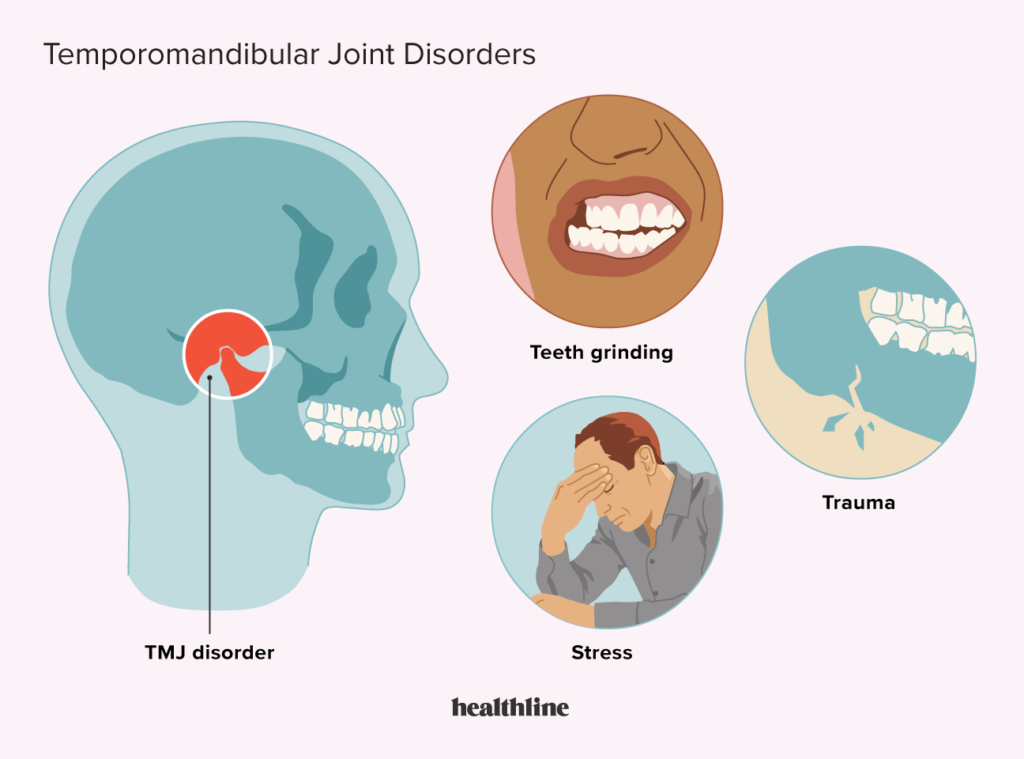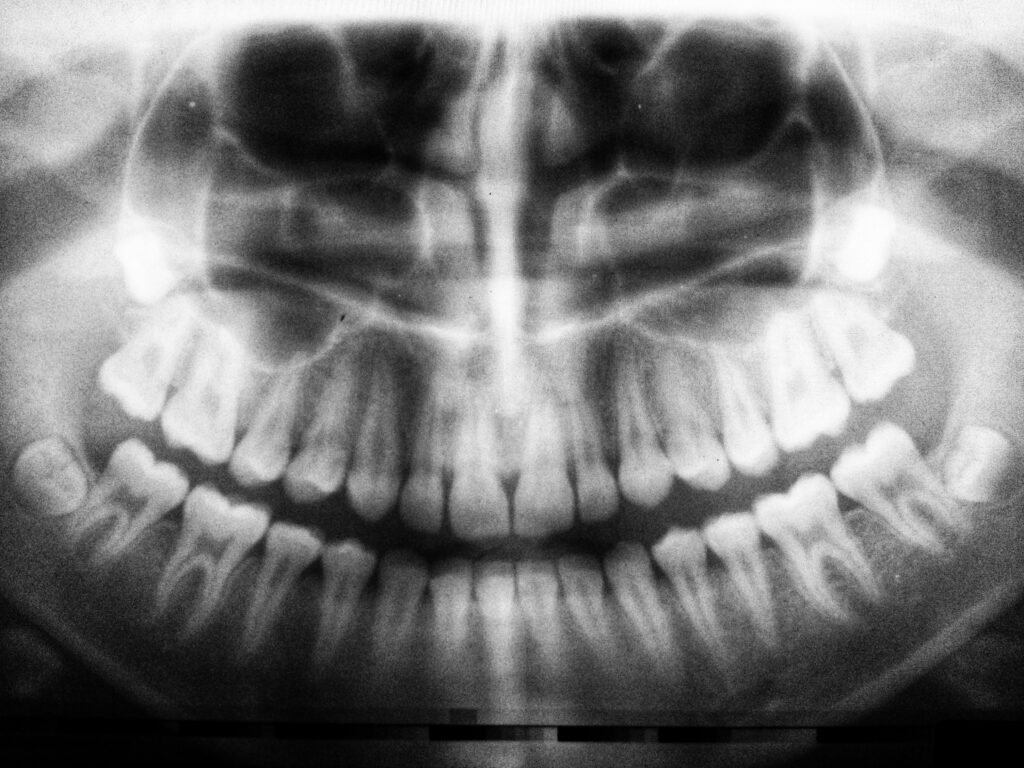Temporomandibular Joint Pain (TMJ pain) involves issues with the jaw joint and surrounding muscles. Treatment depends on the severity of symptoms but typically includes non-invasive options first. Here are common treatments:

5 Easy Steps in Self-Care and Lifestyle Adjustments:
Self-care and Lifestyle Adjustments can play a vital role in TMJ pain control.
1. Diet Adjustments
Diet adjustments are important in Temporomandibular pain (TMJ pain)and disorder management.
- Soft Diet: Eat soft foods to minimize chewing stress on the jaw. Examples include soups, yogurt, smoothies, mashed potatoes, and scrambled eggs.
- Avoid Hard or Chewy Foods: Steer clear of nuts, raw vegetables, tough meats, and chewing gum.
- Smaller Bites: Cut food into small pieces to reduce the effort required to chew.
2. Jaw and Muscle Relaxation
- Avoid Overuse: Limit activities that strain the jaw, such as excessive talking, yelling, or singing.
- Relaxation Techniques: Practice deep breathing, meditation, or progressive muscle relaxation to reduce stress-related clenching or grinding.
- Good Posture: Maintain proper head and neck alignment, especially when sitting at a desk or using electronic devices.
3. Hot and Cold Therapy
- Heat Therapy: Apply a warm compress to the jaw to relax muscles and improve blood flow.
- Cold Therapy: Use a cold pack to reduce inflammation and numbness in the joint.
4. Gentle Jaw Exercises
- Perform stretching and strengthening exercises recommended by a healthcare provider or physical therapist to improve jaw mobility and relieve stiffness.
- Avoid overextending the jaw; stick to gentle, controlled movements.
5. Stress Management
Sleep Hygiene: Establish a consistent sleep schedule and use a supportive pillow to avoid neck strain.
Identify Triggers: Reduce or eliminate stressors that may lead to jaw clenching or teeth grinding.
Regular Exercise: Activities like yoga, tai chi, or walking can help relieve stress and promote muscle relaxation.
Besides these Lifestyle hacks, Professional Care can be taken in case of persistent TMJ pain.
Medical Treatments:
1. Medications:
– Over-the-counter pain relievers (e.g., ibuprofen, acetaminophen).
– Muscle relaxants for severe muscle tension.
– Low-dose antidepressants to manage pain or stress.
2. Physical Therapy: Includes exercises to strengthen and stretch jaw muscles, massage, and ultrasound therapy.
3. Mouthguards: Custom-made devices to prevent teeth grinding (bruxism) and relieve pressure on the joint.
Advanced or Surgical Options:
1. Injections:
– Corticosteroid injections to reduce inflammation.
– Botox injections for muscle tension.
2. Arthrocentesis: Minimally invasive procedure to flush out the joint.
3. Surgery: Reserved for severe cases, such as joint replacement or repair.

When to See a Dentist?
You should consider visiting a dentist for TMJ pain if you experience any of the following symptoms:

Persistent Pain
If you have ongoing TMJ pain or discomfort that lasts for several days or weeks.
Jaw Locking or Limited Movement
If your jaw feels stiff, locks, or you have difficulty opening or closing your mouth.
Clicking or Popping Sounds
Alongside TMJ pain if you hear a clicking, popping, or grinding noise when moving your jaw, or if you feel a sensation of misalignment.
Headaches
Frequent or chronic headaches, especially around the temples or forehead, which could be linked to TMJ dysfunction.
Pain While Chewing
Discomfort or pain when chewing or biting, especially when eating hard foods.
Ear Pain or Ringing
If you experience ear pain, a sensation of fullness in the ear, or ringing in the ears (tinnitus) associated with jaw issues.
You may also like: Food getting stuck in teeth? Know what to do! – Floss Daily
A dentist can help diagnose the cause of the pain and recommend treatment options, such as bite adjustments, splints, physical therapy, or other interventions to manage or reduce symptoms. Early intervention is key to preventing further complications or chronic issues.
Learn more about TMJ dysfunction at https://en.wikipedia.org/wiki/Temporomandibular_joint_dysfunction#Management

